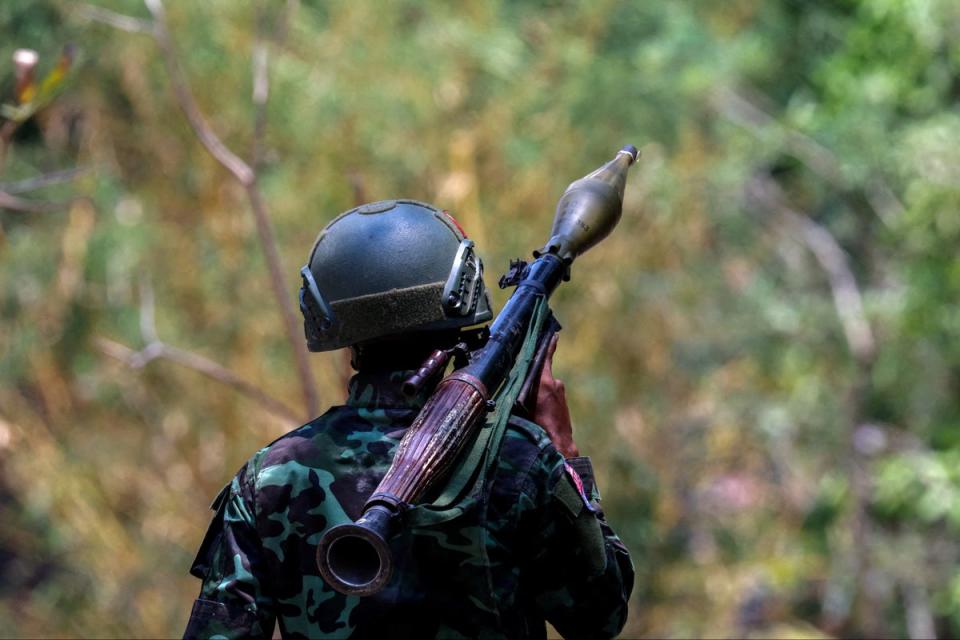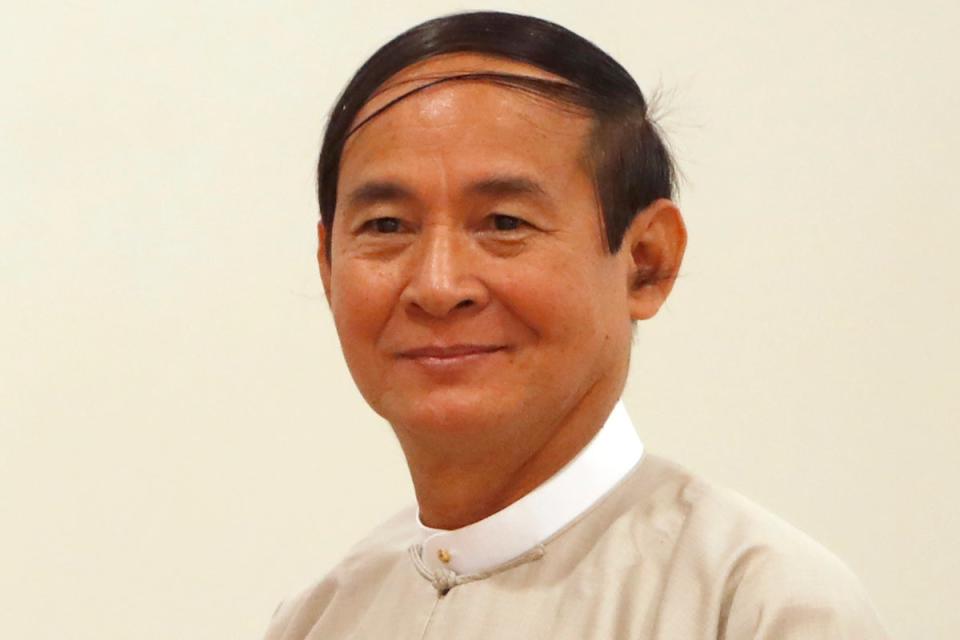Aung San Suu Kyi’s son fears her move from jail to house arrest is army’s cynical ploy to use her as human shield
Aung San Suu Kyi’s son has said he fears the decision by Myanmar’s military junta to move his mother from prison to house arrest is a cynical ploy to use her as a human shield against attacks by pro-democracy resistance fighters.
The jailed former leader, 78, has been taken from jail in the regime-built capital Naypyidaw to an unknown new location.
Her transfer comes after the army suffered a string of major defeats against resistance forces and their allies in ethnic minority guerrilla groups. The military claim the reason Ms Suu Kyi has been moved is as a precaution during a heatwave across the country – but her son Kim Aris believes she will be relocated to deflect the opposition forces.
“I do fear for the reasons for her move,” Mr Aris told The Independent. “It would not appear to be for humanitarian reasons but rather to move her to a place to act as a shield against armed drones which are being used to try to remove this military tyranny by a brave opposition.
“These cynical manoeuvres by the Burmese [Myanmar] generals merely underline their lack of a sense of justice and freedom.”
The National Unity Government (NUG) – an alliance of anti-junta groups – backed Mr Aris’s concerns, saying that Ms Suu Kyi could be moved to a military base that may be targeted by pro-democracy forces.
“There is a real risk that the junta will strategically position [Ms Suu Kyi] and the president at key military installations, thereby exposing them to potential targeting by the revolutionary forces,” Linn Thant, a representative of the NUG, said in a statement.

It is understood that both Ms Suu Kyi, a Nobel Peace Prize winner, and ousted president U Win Myint, 72, have both been moved, though it is not clear where they have been taken. Before being sent to prison in the wake of the military coup in February 2021, Ms Suu Kyi was said to have been held in a military safe house inside an army base.
Ms Suu Kyi was sentenced to 33 years in prison by the Myanmar military junta, later reduced to 27 years. The charges, which range from corruption to the ownership of illegally imported walkie-talkies, have been widely condemned as politically motivated to discredit Ms Suu Kyi and bolster the military’s coup.
On Wednesday, the military junta also granted amnesty to more than 3,000 prisoners to mark this week’s traditional new year holiday. However, that pales in comparison to its brutal crackdown on dissent. According to the Assistance Association for Political Prisoners, an independent group that monitors casualties and arrests, more than 20,351 people arrested on political charges since the 2021 army takeover are still in detention, most of whom have not received criminal convictions.
Mr Aris has previously spoken to The Independent about his mother’s deteriorating health in prison and has pushed for her to be given the medical care she needs. “While I am glad my mother is no longer in utter discomfort in a prison, [having been] illegally held after a kangaroo court hearing in secret by an undemocratic military junta, I do fear for the reasons,” he said.

“As a son, I wish her to be in a better place for her care but I do not thank a regime which has strangled democracy and freedom for her and everyone else in Burma,” he said.
“[My mother] is 78 years old and only wants freedom and democracy for her country ... She is the longest sentenced political female prisoner and her fight has never faltered,” the UK-based Mr Aris added.
The NUG also called for the unconditional release of Ms Suu Kyi and U Win Myint.
“Moving them from prisons to houses is good, as houses are better than prisons. However, they must be unconditionally freed. [The junta] must take full responsibility for the health and security of Aung San Suu Kyi and U Win Myint,” spokesperson Kyaw Zaw said.
In February, Mr Aris said that he had received the first confirmation that his mother was alive since she was arrested in the wake of the 2021 coup.
“I was overjoyed to actually see something in her handwriting, to know that she’s able to actually write, for starters, because I haven’t had any confirmation that she’s actually alive for all these years,” Mr Aris told Sky News.
In the letter, Ms Suu Kyi said she is suffering from dental health problems and spondylitis, a painful condition that inflames the joints of the backbone, but is generally well.
Speaking about the conditions Ms Suu Kyi had faced before the latest move by the military junta, Mr Aris said: “I am aware she is being held apart from all the other prisoners – essentially in solitary confinement.
“I do know that she’s never accepted any preferential treatment to the other prisoners, so if she is being held separate from the other prisoners and in similar sorts of conditions to them, then I can only imagine it’s pretty dire.”


